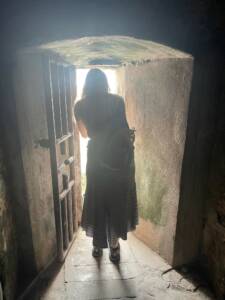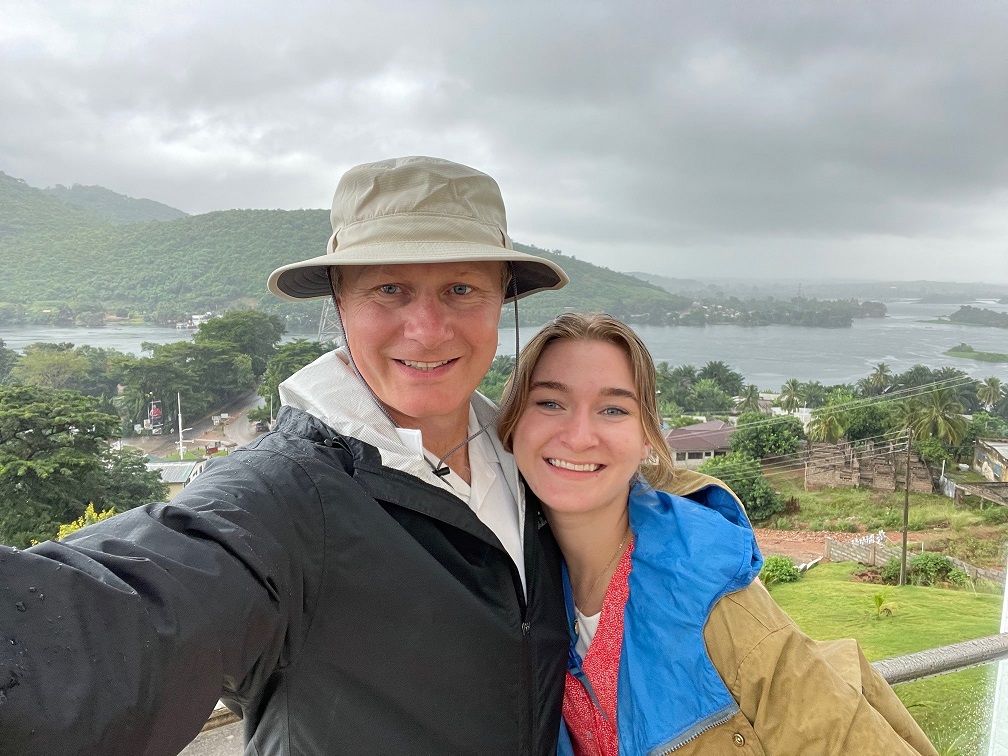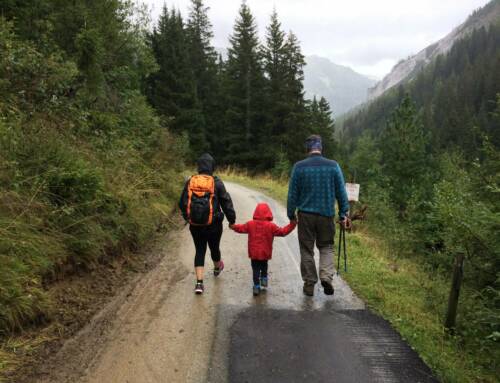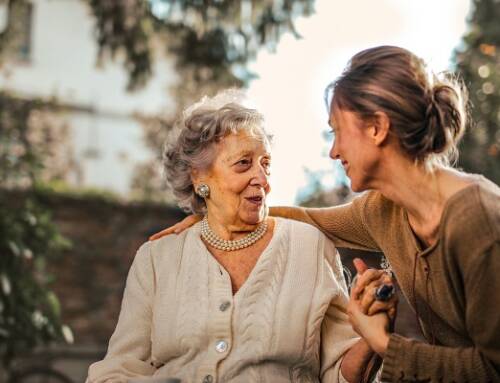Aaron recently returned from a Vision Trip with the non-profit organization, International Justice Mission. He was joined on this trip by his daughter Ellianna, who shares more about their journey below.
This IJM Ghana trip was stressful, agitating, and uncomfortable, but that is what made it so wonderful. I was repulsed at the pungent smells and claustrophobia brought to life by the tour at Elmina Castle; my heart was broken for the cheerful survivors dancing at the aftercare center; itching guilt overwhelmed my body as I sat cruising Lake Volta while taking pictures of possible child labor victims. Tears were shed, and boundaries were broken. It was good.
Through my discomfort came life-long relationships and a desire for change. It made me realize that sometimes the only way to make a change is not to bask in our comfort, but to meditate in our discomfort. We cannot stay in the celebration of one God-given victory or never challenge ourselves and others for justice, for then there would be no further change. The cycle must persist. It is not easy work, which is something the IJM Ghana team is well aware of. Below, I will walk through my thoughts and emotions by witnessing a glimpse of IJM’s work and the reasons behind their passion.
For a little under a week, I was part of a group of Americans who had the opportunity to tour IJM’s work in Ghana. Briefly explained, IJM combats various forms of modern-day slavery in 17 different countries, but this trip was focused on child trafficking in Ghana’s Lake Volta fishing industry. The trip began with Ghana’s slave history and then worked its way through IJM’s current progress to its future goals. On our first day, we were taken to Elmina Castle, previously known as a trading post for slaves. As we walked through with relative ease and took pictures of children playing outside its walls, it was impossible not to think about the inhumane practices that were inflicted on people not too long ago. We had stood in one of the small cells where as many as 200 tattered slaves were kept, but here claustrophobia was the least of their worries. Bodily fluids and toxic gasses created a bed for disease. Scraps of food that seldom dropped from the ceiling weakened the body. Sexual abuse tore through skin, bone, and dignity.
The conditions were horrible, but one thing killed hope more than the rest: the Door of No Return. As the name insinuates, when someone stepped through that door, they never returned. They would be stacked like Jenga blocks in a ship that sent them to various places to be further enslaved, further beaten, and further oppressed. If they did not die in the castle or the ship, they would most likely die in their new forever home.

The “Door of no return”
We returned to the bus and I sat still, attempting not to confront all that we had learned. Why? Because I knew if I did it would become a reality. I did not want the treacheries they experienced to be true. I did the same thing when we played with the survivors at the aftercare center and when we admired the beauty of Lake Volta. All I wanted to see was children finding joy in the Lord as they put on a show for us and taught us childhood games. I didn’t want to see the beatings on the children’s skin or the trauma they experienced when their best friend never returned from the water. I wanted to ignore the fact that I saw children fishing in the rain on a school day. We were being shown the beauty of God’s accomplishments through IJM, and I wanted to stay in that beauty.
But at a specific point on our boat ride, I finally wanted to jump into the cloudy waters and swim over to the fishing children to accompany them. It was when a canoe was close enough for me to see two sets of raw palms waving at us. But they didn’t wave with the common emotion of excitement, rather they had a flat face and only waved to say, “I’m here. Please, notice me.” I was embarrassed at the sight of our motorized boat among the canoes and people’s worry about our dry state while soaked children worked to keep their canoe from drowning. Don’t get me wrong, I am grateful for the beautiful experience and generous hospitality, but I am also enraged by how different my life is from theirs.
While this trip has angered me, it has also given me hope. Throughout our time there, we had an abundance of food. I forgot what it was like to be hungry. Although I could not keep up with the frequent supply of amazing food, I was grateful for the time spent at meals and the welcoming culture I experienced. It is a beautiful culture, one that I am now missing as I am back in America. Food was used to welcome us and bring us together (I don’t know how to grammatically put Akwaaba into a sentence, but this is where I would use it). At our meals, I met many people that I would now like to consider my family and learned many things about Ghana’s beautiful culture. We were taught to dance, carry a bag on our head, how communal Ghanaians are, and how important the day of the week you were born on is (long live Thursdays!).
However, the most important thing I learned at a meal is how God is working wonders through every IJM member to restore justice. On the last day, our American crew joined the whole IJM Ghana team at a retreat. Of course, there was song and dance. The most entertaining part was how stiff we Americans looked on the dance floor, but the most powerful part was the worship. You could hear in the singer’s voice that she was not singing from her mouth, but from her soul, in a determined effort to reach God. She was reaching others too. When I looked around, people were moved. Hands were raised to the sky in praise and lowered to the ground in humility. Many were crying, and so was I. I was crying because we were given a beautiful gift: hope. I could see how these people truly believed in what they were doing and the power of God. There is a chance for a brighter future because the light of God shines through these people.
Throughout the entirety of the trip, I prayed that I would not leave it unchanged. I was nervous that I would act as many would after a church service: raise our hands during worship, say a couple of amens, comment on the pastor’s preaching abilities, and then go home to complain about the AC not working, forgetting everything until the next Sunday. It is a cycle that goes nowhere, and that is what I am still afraid of (hopefully others are as well) for me and this Ghana trip. I hope my fear increases and that I will channel it for good. I hope my desires will turn into action rather than remain thoughts. I hope I will share my experiences and not selfishly keep them to myself to remain comfortable and avoid confrontation. I hope I will let God take over and put the entirety of my faith in him. And I hope my hopes are also others’ hopes. If so, restoration will shine through the darkness.
You can learn more about IJM at IJM.org.






